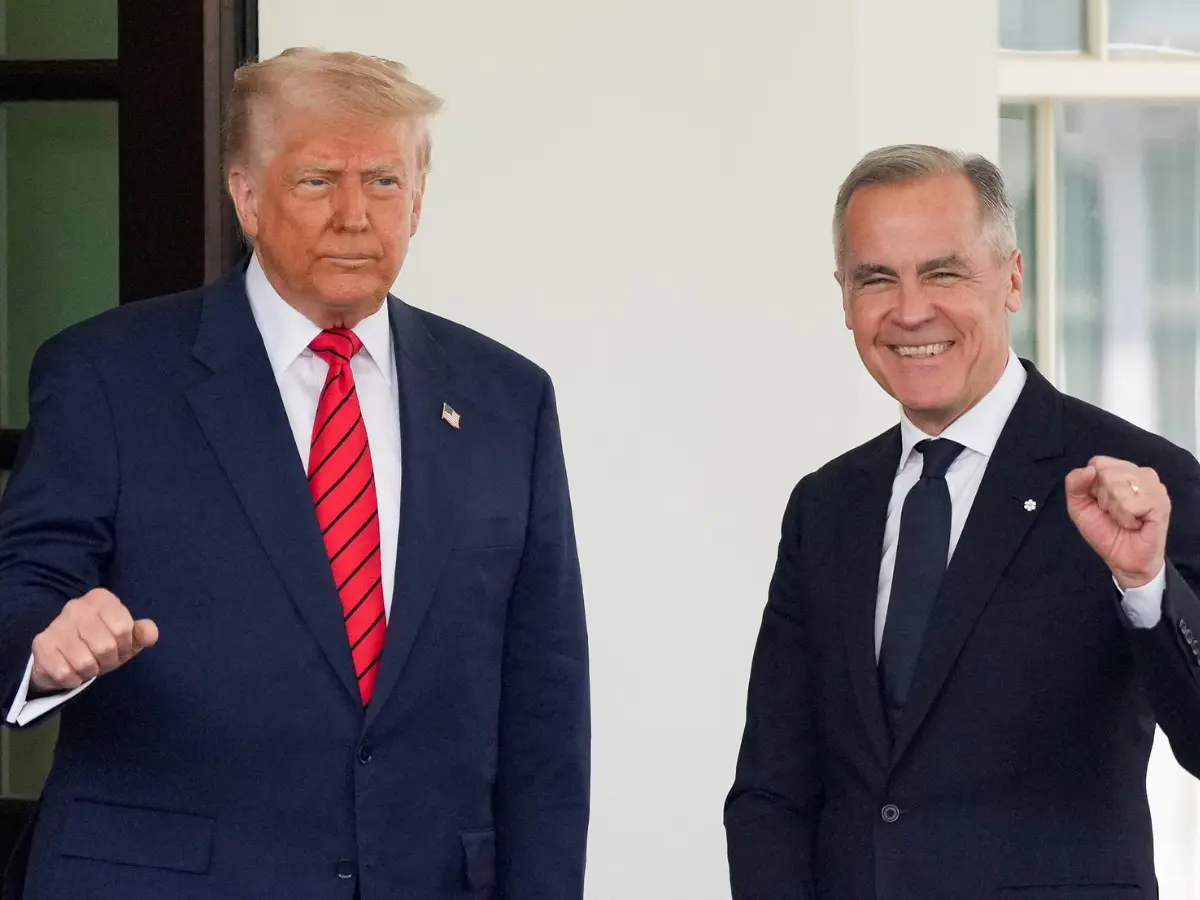The leaders of Brazil and Canada have set examples on how standing up to US President Donald Trump can boost their popularity. Leaders around the world might do well to follow events in South America’s biggest country and America’s neighbour and biggest trading partner.
If the US follows the schedule it has set for its global trade war, imports from Canada will carry a tariff of 35 per cent beginning on August 1. For Brazil, the rate will be a staggering 50 per cent. Unlike for the rest of the world, the reason for Brazil’s stiff rate is entirely political.
On April 2, a date Trump called Liberation Day, Trump signed an executive order on a package of import duties designed to end America’s persistent trade deficits, which he termed a national emergency. The US buys more goods from most countries than it sells to them.
There are exceptions. Brazil has a trade surplus with the United States, and Trump laid out his rationale for the 50 per cent levy in a letter to Brazilian President Luis Inacio Lula da Silva, popularly known as Lula. Posted on Trump’s social media site, Truth Social, the letter is an extraordinary example of the unique way the US President conducts foreign policy.
Here is the first paragraph of the letter. It is so far from mainstream diplomacy that many readers, including Lula, first thought it was an Internet fake.
“Dear Mr. President: I knew and dealt with former President Jair Bolsonarao, and respected him greatly, as did many other Leaders of Countries. The way that Brazil has treated former President Bolsonaro, a Highly Respected Leader throughout the World during his term, including by the United States, is an international disgrace. The Trial should not be taking place. It is a Witch Hunt that should end immediately.”
The second paragraph complained about Brazilian rules regulating content on US social media platforms and added: “Starting on August 1, 2025, we will charge Brazil a tariff of 50% on any and all Brazilian products sent into the United States.”
Bolsonaro, who has called himself “the tropical Trump” is facing trial on charges of leading an attempted coup to overturn the results of the 2020 elections and prevent Lula from taking office. The case is handled by Brazilian Supreme Court judge Alexandre de Moraes who has been the focus of an intense lobbying campaign in Washington by Bolsonaro’s son Eduardo, who has been demanding financial sanctions against the judge. The campaign had partial success.
On July 18, US Secretary of State Marco Rubio announced that Moraes had his US visa revoked. The decision was announced a few hours after the judge ordered Bolsonaro to wear an ankle monitor and banned him from contact with foreign governments.
TheUS administration’s interference in Brazilian domestic affairs and a pending trial are almost certain to boost the popularity of Lula, whose approval ratings already ticked up after a reference to Trump as a would-be world president at the end of a two-day meeting in Rio de Janeiro of the BRICS countries. The term BRICS was coined in 2001 by a Goldman Sachs economist and stood for Brazil, Russia, India, China and South Africa. It gradually expanded and now embraces ten countries with a combined population of 3.75 billion, almost half the population of the globe.
The American political analyst Ian Bremmer, head of the Eurasia Group, a political risk research firm, described the US campaign in favour of Bolsonaro as “a flag-wrapped gift” for Lula. Escalating the clash allows him to cast himself as the defender of Brazilian sovereignty.
Lula clearly intends to ratchet up the row. On July 17, in an interview with Christiane Amanpour of CNN, he said he had been surprised not only by the US tariff announcement but also by the way it was delivered, on a social media site. He said his government had suggested negotiations in a formal letter.
“I’ve been saying publicly that we will use all the words that exist in the dictionary in trying to negotiate. That’s how the trade world works. What we cannot have is President Trump forgetting that he was elected to govern the US He was not elected to be the emperor of the world.”
The spat between Lula and Trump brings to mind a long Trump campaign to make Canada the 51st state. The US leader was in the habit of calling then Prime Minister Justin Trudeau “governor”. Trudeau resigned in January, and his Liberal Party lagged in the polls and looked set for defeat in elections on April 28.
But then Trump turned the contest on its head with oft-repeated suggestions that Canada should be the 51st US state, in effect a threat of annexation. Within weeks, the Conservative Party’s 25-point lead had evaporated and was overtaken by the Liberals, who waged an anti-Trump campaign. Liberal leader Mark Carney won. His first foreign visit, a week after his electoral victory, was to Washington.
The Oval Office meeting between Trump and Carney was congenial, and the discussion, inevitably, came to the 51st state idea. Solemnly, Carney said: “Canada is not for sale. As you know from real estate, there are some places that are never for sale. We are sitting in one now. Having met with the owners of Canada over the course of the (election) campaign, last several months, it’s not for sale. Won’t be for sale, ever.”
Despite the congenial atmosphere of the encounter, there was no change in the US assessment of tariffs. But there was a change in the approval rating of Carney. Polls showed a marked increase.
